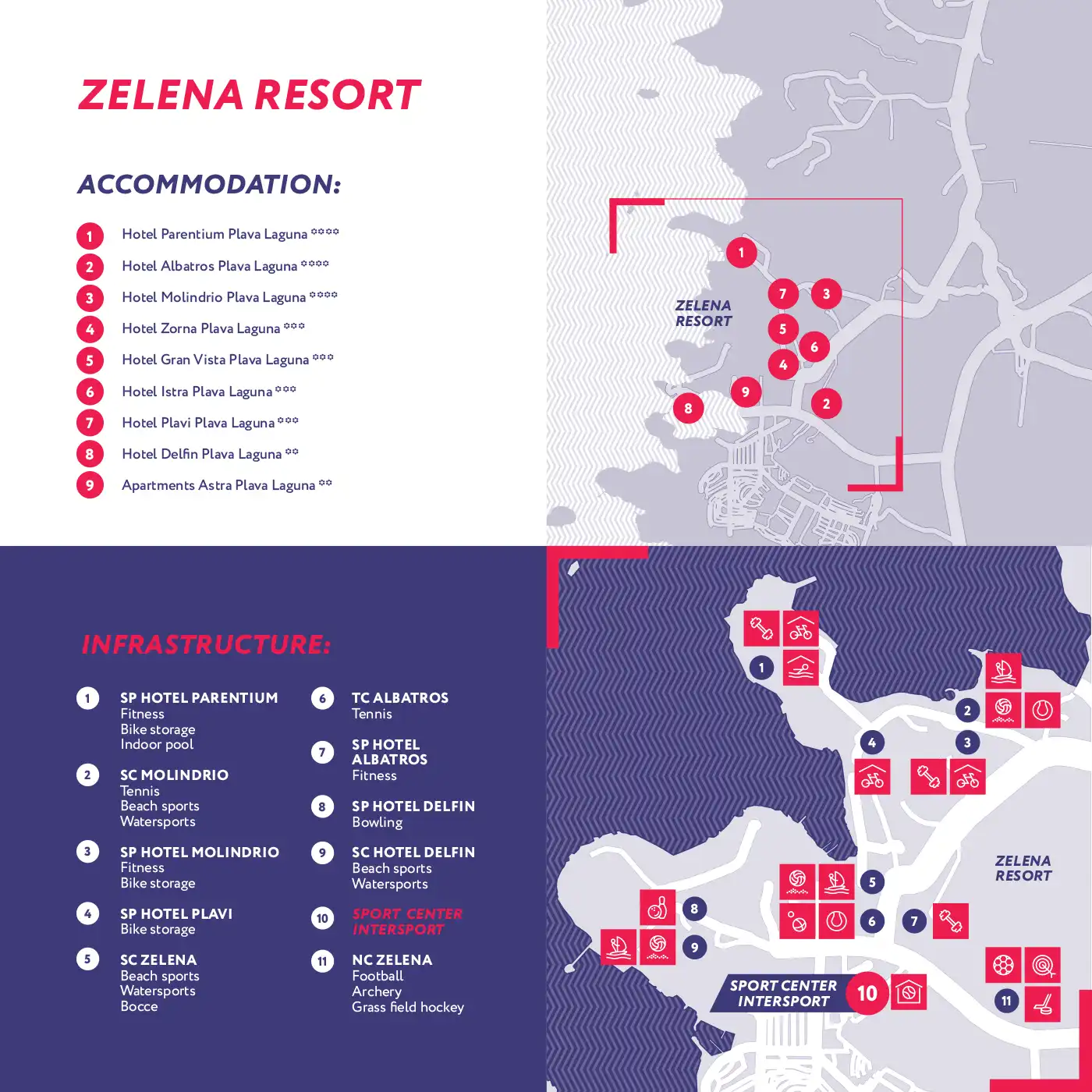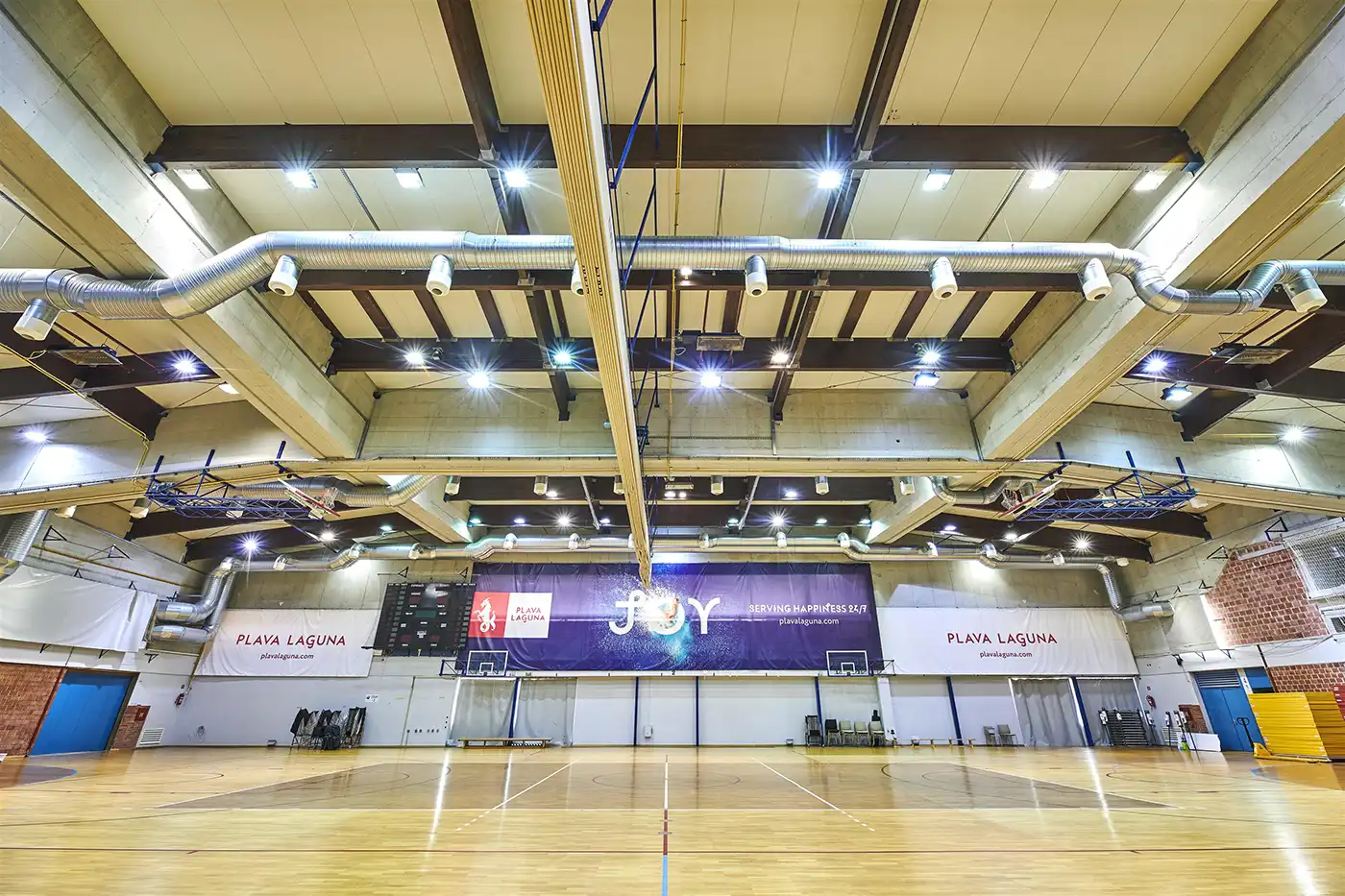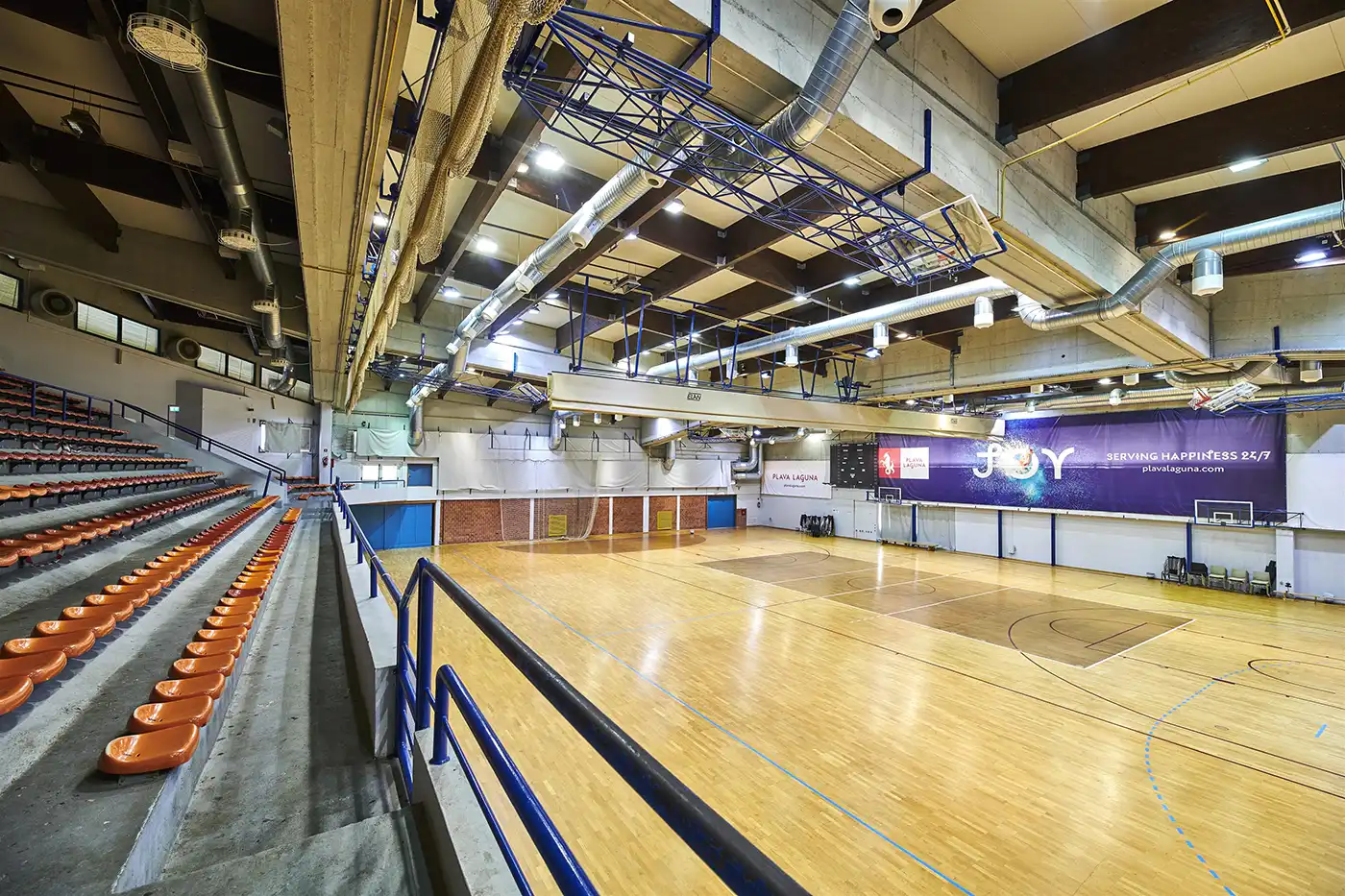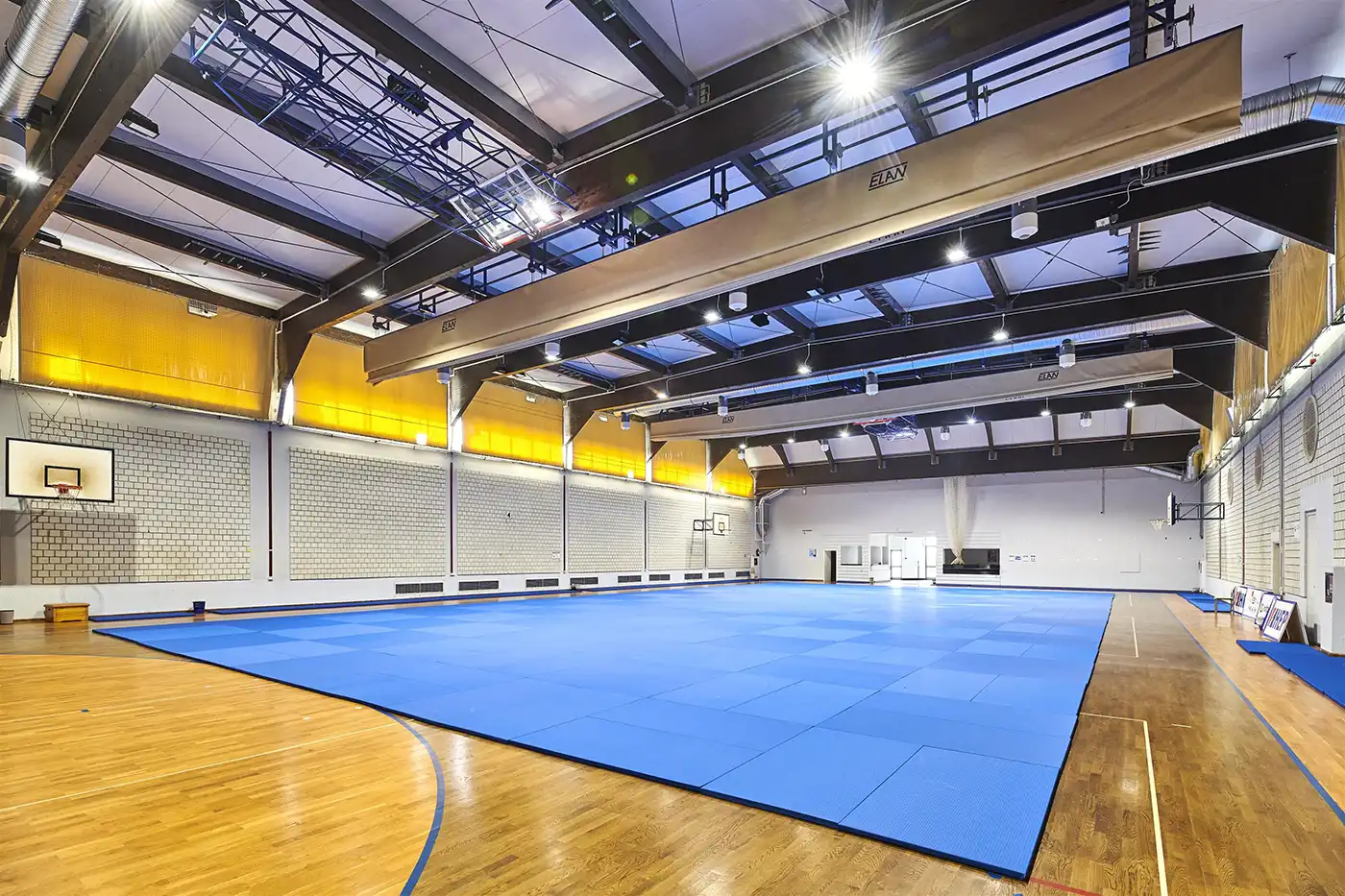JUDO
TECHNICAL RULES AND REGULATIONS - U15 & U18
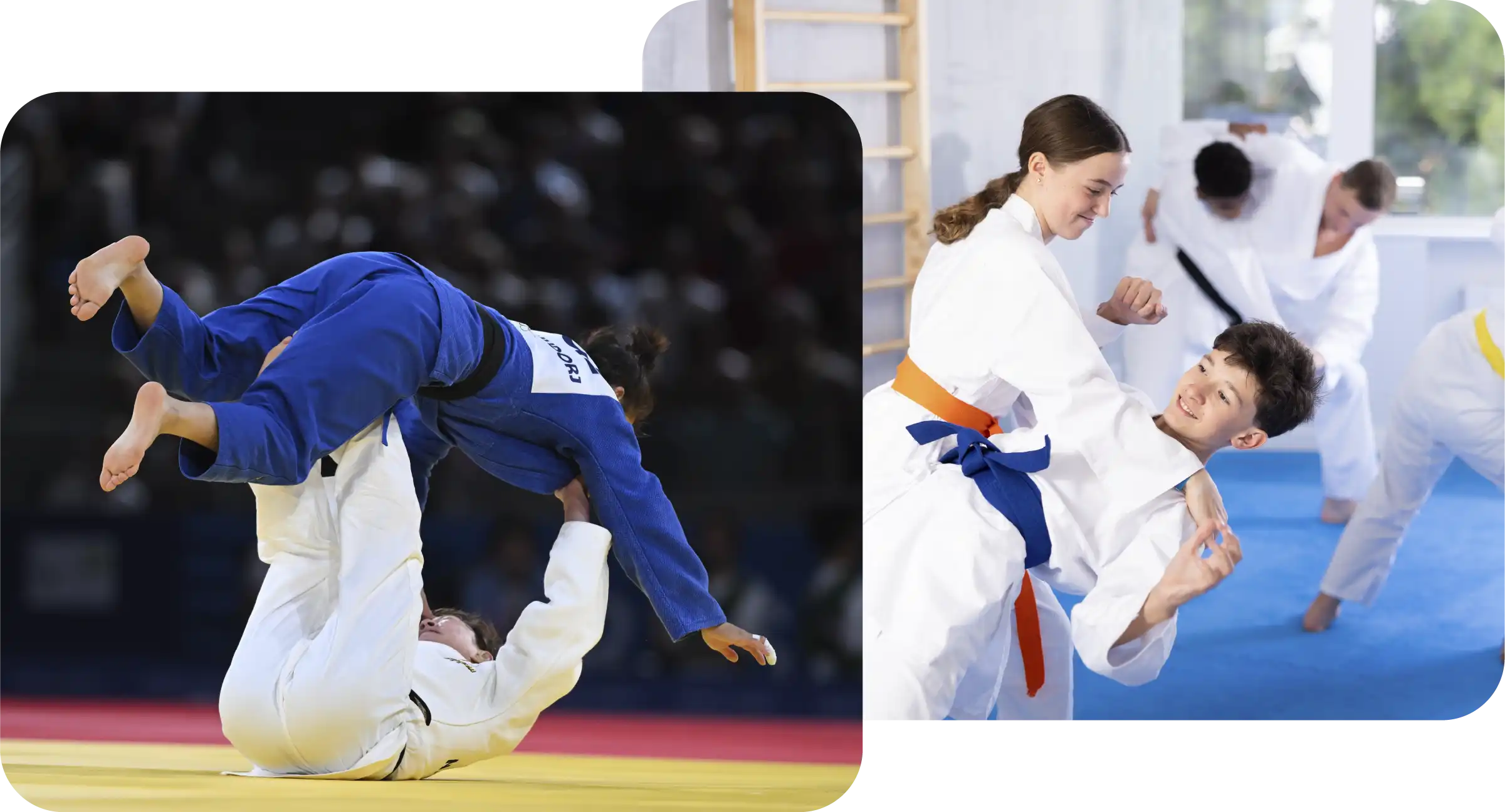
GENERAL OVERVIEW
This document ensures that all competition-related aspects are managed in a fair and structured manner. The key objectives of these regulations are:
- Defining the general conditions for participation in ESG JUDO events.
- Outlining the sport program details.
- Specifying the technical rules.
- Setting the code of conduct
- Establishing delegation composition guidelines.
- Setting the procedures for draws.
- Defining the process for protests and appeals.
1. GENERAL CONDITIONS
The competition will be conducted in accordance with IJF regulations and overseen by the Event Technical JUDO Committee (ETJC). Any variations from IJF regulations will be outlined in the event bulletin. The competition will follow the latest version of the IJF Rules of JUDO published by the International JUDO Federation (IJF).
Decisions regarding issues not covered in this document will be determined by the ETJC.
Competition Categories:
- U18: Boys and Girls Categories
- U15: Boys and Girls Categories
Age Eligibility:
- U18: Judokas born in 2008-2009-2010
- U15: Judokas born in 2011-2012-2013*
Younger judokas may be accepted upon approval by the ETJC.
2. SPORT PROGRAM
Events:
U18
- Boys: -50kg, -55kg, -60kg, -66kg, -73kg, -81kg, -90kg, +90kg
- Girls: -40kg, -44kg, -48kg, -52kg, -57kg, -63kg, -70kg, +70kg
Duration: 4 minutes Golden Score: No time limit
U15
- Boys: -38kg, -42kg, -46kg, -50kg, -55kg, -60kg, -66kg, -73kg, +73kg
- Girls: -36kg, -40kg, -44kg, -48kg, -52kg, -57kg, -63kg, -70, + 70kg
Duration: 3 minutes. Golden Score: No time limit.
3. TECHNICAL RULES
The competition will follow the latest IJF Rules of JUDO, with specific adaptations for ESG JUDO events.
SPECIFIC RULES
Judogi Control
Approved Judogi
All Judoka must compete in Approved Judogi
Judogi Control
Judogi must only comply with the Sokuteiki rules (no labels obligatory, IJF label recommended).
Backnumber
Recommended: If non-official backnumbers are used, ESG reserves the right to ask for removal, if the material is not up to regular standards.
Note:
- In the case of a repeated offence the coach will be suspended for the rest of the competition.
- All judokas must present a medical certificate confirming they are fit for judo competition, not older than 6 months.
Weigh - In
- The official weigh-in for each weight category is held the day before the competition day (see program).
- Athletes are not allowed to weigh in naked.
- Boys must wear at least underwear and girls at least underwear and a T-shirt.
- An additional 200g will be allowed for their weight category limits.
- Athletes must present their accreditation card and their passport (National ID Cards showing nationality, picture, and date of birth are also accepted).
For U15 judokas, the following techniques are forbidden:
- Kansetsu-waza (armlocks)
- Shime-waza (strangulations)
- Sacrifice techniques involving direct head impact
Violations will result in immediate Hansoku-make (disqualification from the match).
Referees
Each delegation may enter a referee.
- The contestants must not shake hands BEFORE the start of the contest.
- When the athletes are leaving the mat they must wear judogi in proper way and are not allowed to take out any part of the judogi or the belt before leaving the field of play.
Competition Mode
The competition will be conducted in accordance with the latest IJF SOR and IJF Refereeing Rules.
Competition systems according to number of participants:
- 6 and more entries: Double repechage
- If there are one (1) to five (5) athletes the low numbers competition systems and rules apply.
| No | Medals awarded | WRL points awarded (if applicable) | Competition System |
|---|---|---|---|
| 5* | Gold, silver and one bronze | First, second, one third and one or two fifth (only if the athlete won one contest in the round robin) place. | The athletes will be divided as follows: Pool A - 3 athletes will compete in a round robin system. The winner will go to the final, runner-up will compete against the looser from pool B for a bronze medal contest. Pool B – 2 athletes will compete for a place in the final. |
| 4* | Gold, silver and one bronze | First, second and one third place. | Pool system with two (2) single contests, then a contest between the two (2) losers for the single bronze medal and a contest between the two (2) winners for the gold and silver medals. |
| 3* | Gold, silver and one bronze (for individuals, only if contest was won) | First, second and third (only if the contest was won) place. | A round robin system will be held in the elimination round. The best will go to the final. |
| 2* | Gold (individuals) | First place. | One final contest. |
| 1* | None | No | No competition |
5. DELEGATION COMPOSITION
Each delegation must include:
- Head of Delegation (HOD) (Mandatory)
- Judokas (Mandatory)
- Team Officials (Mandatory)
- Field of Play officials (Judges) (Optional)
Head of Delegation (HOD)
Each delegation must appoint a single head, who serves as the main liaison between the delegation and the Organizing Committee (OC).
Judokas
- All participants must be students.
- Only accredited Judokas from the official team list may compete.
- There is no limitation to register number of Judokas per category
Team Officials
- Coaches:
- Each delegation must have at least one coach.
- Other Team Officials:
- Roles may include doctors, trainers, physiotherapists, statisticians, and team managers.
- Not mandatory but must be specified during registration.
- Any unregistered persons will not be considered part of the official team.
Field of Play Officials
- Each delegation may enter a referee.
• The contestants must refrain from shaking hands before the start of the contest.
• When athletes leave the mat, they must wear their judogi properly and are not allowed to remove any part of the judogi or the belt before leaving the field of play. - Judge must hold either an international (IJF) or national qualification.
- Judge must present certification during registration.
Additional Adults
- Roles may include interpreters, security staff, media personnel etc.
- Additional adults are optional and must be specified during registration.
- Unregistered individuals will not receive accreditation.
5. DRAW PROCEDURE
- The ETJC determines criteria and scheduling for the draw.
- The draw will be held as a technical draw during the technical meeting. NO seeding
- Any unforeseen issues related to the draw will be resolved by the ETJC before the competition begins.
6. PROTESTS AND APPEALS
- Appeals involving match results or other non-disciplinary matters will be reviewed by the ETJC.
- Appeals must be:
- Submitted within 30 minutes of the incident.
- Written in English and handed to the Event JUDO Technical Commission (ETJC).
- Accompanied by a €100 fee (paid in cash) to the ETJC.
- If the appeal is upheld, the fee will be refunded. If rejected, the fee will be retained by the organizing committee.
JUDO - Provisional program
| Courts | day | Schedule |
|---|---|---|
| Intersport | 26 March Thursday | arrival/Camp 19:00 -21:00 |
| Intersport | 27 March Friday | 9:00-18:00 |
| Intersport | 28 March Saturday | Camp 08:00-10:00 |
The program is subject to change depending on the number of registered Judokas.
VENUES INFORMATION
POREČ
ZELENA RESORT MULTIFUNCTIONAL INTERSPORT COMPLEX
The multifunctional Intersport complex located in the Zelena Resort consists of two sport halls, dressing rooms, and stands.
